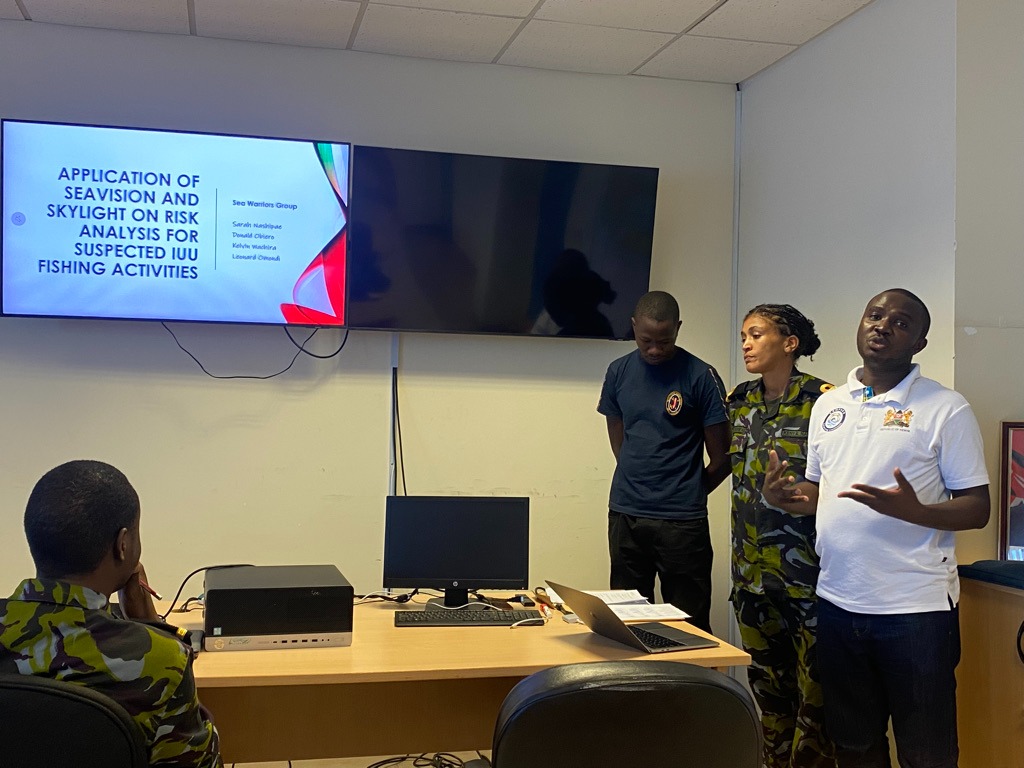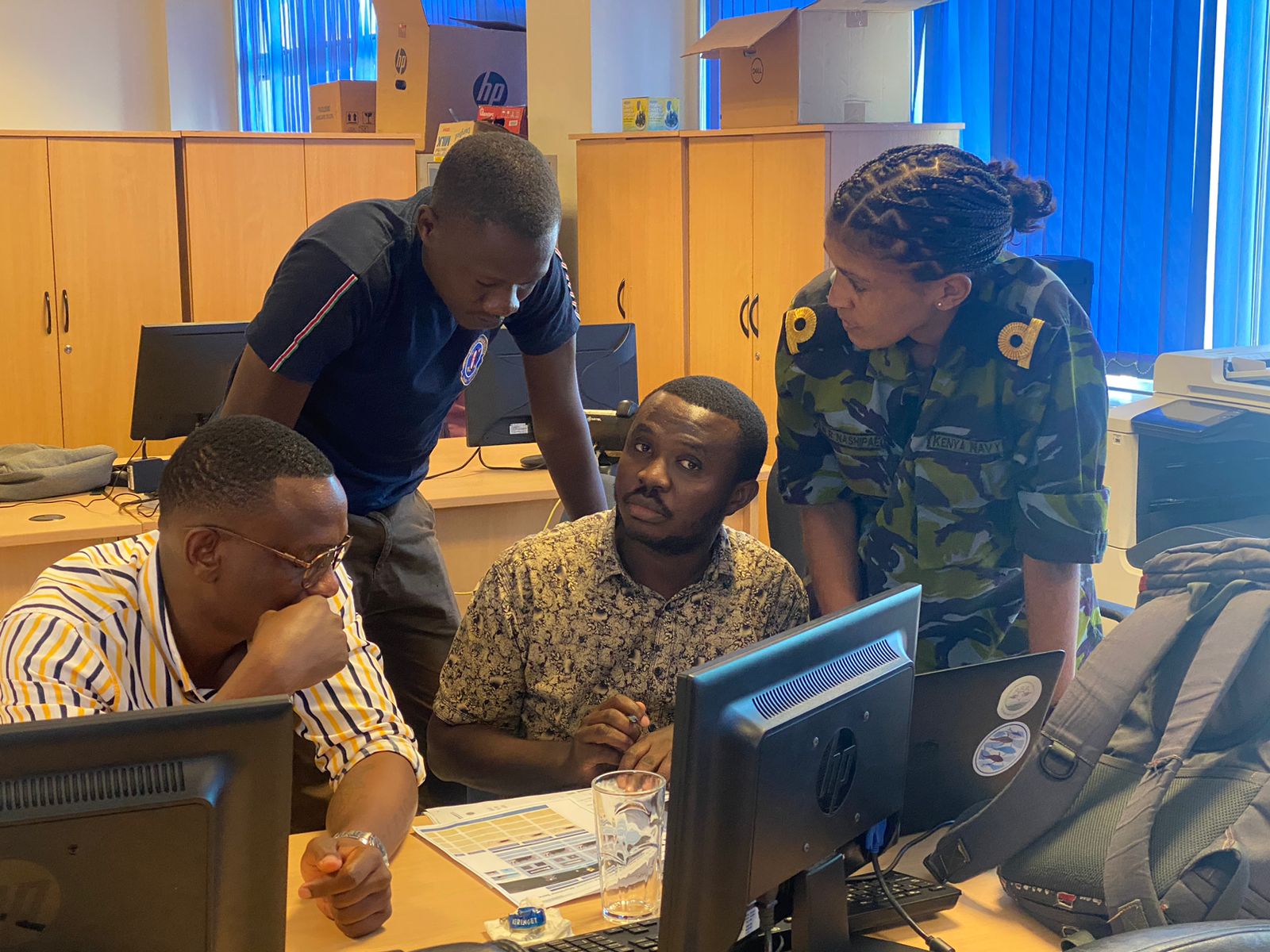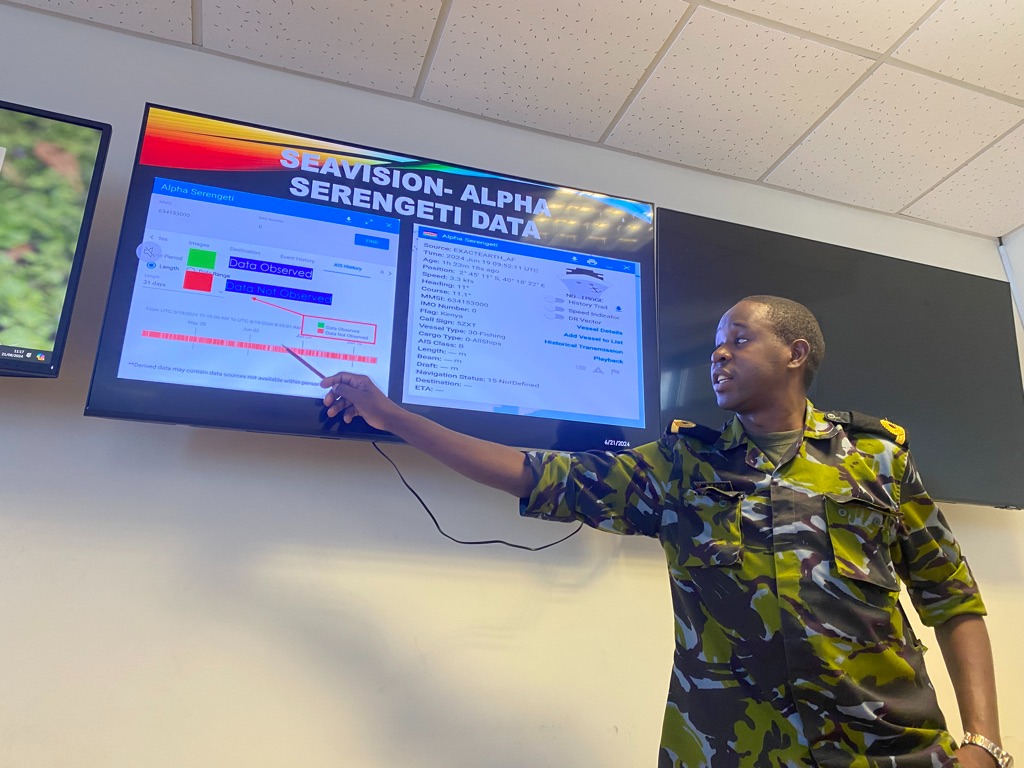UNODC Eastern Africa News and Stories
You are here: Home / News
Addressing Crimes in the Fisheries Sector in Kenya
 The Indian Ocean West (IOW) region, with its strategic location and abundant natural resources, is of significant importance. Kenya is grappling with a pressing issue: illegal, unreported, and unregulated fishing (IUU). This illicit activity is causing an estimated annual loss of Sh45 billion, a figure that underscores the urgent need for effective law enforcement. The impact of IUU fishing is not just financial, but also environmental. It leads to overfishing, destruction of marine habitats, and loss of biodiversity. Without immediate and robust measures, the country's coastal and maritime security, marine ecosystems, and fisheries sustainability could be at risk, leading to severe negative economic and environmental impacts. The situation demands enhanced surveillance technologies and improved coordination among various maritime agencies.
The Indian Ocean West (IOW) region, with its strategic location and abundant natural resources, is of significant importance. Kenya is grappling with a pressing issue: illegal, unreported, and unregulated fishing (IUU). This illicit activity is causing an estimated annual loss of Sh45 billion, a figure that underscores the urgent need for effective law enforcement. The impact of IUU fishing is not just financial, but also environmental. It leads to overfishing, destruction of marine habitats, and loss of biodiversity. Without immediate and robust measures, the country's coastal and maritime security, marine ecosystems, and fisheries sustainability could be at risk, leading to severe negative economic and environmental impacts. The situation demands enhanced surveillance technologies and improved coordination among various maritime agencies.
Mr. Abong'o, a Fisheries Officer with Kenya Fisheries Service, shares his personal commitment to his work, saying, "I joined law enforcement driven by a deep passion for protecting Kenya's marine resources and ensuring the sustainability of our aquatic ecosystems. Through my efforts, I aim to drastically reduce instances of illegal, unreported, and unregulated fishing (IUU) in Kenya and enhance the safety and security of our waters." His dedication is a testament to the importance of the work beingdone in the fisheries sector.
 The United Nations Office on Drugs and Crime Global Maritime Crime Programme (UNODC GMCP) held a five-day MDA training focused on fisheries enforcement with integrated with use of satellite imagery and data in Mombasa, bringing together twelve operational officers from the Kenyan maritime law enforcement agencies, including the Kenya Coast Guard Service (KCGS) and Kenya Fisheries Service (KeFS). The primary objective of the training was to equip officers with the necessary knowledge and skills to enhance their maritime domain awareness capabilities for use in countering illegal fishing. Throughout the training, participants gained a deeper understanding of the current state of global fishing and detection and the analysis of maritime information, risk assessment, and threat responses. “The course is very important because it teaches you about different MDA tools to identify the vessels of interest and their activities. The course has enabled me to know different fishing collaboration agencies that will help curb maritime crime,” commented Benard Yugi Opiyo, a KCGS Sergeant.
The United Nations Office on Drugs and Crime Global Maritime Crime Programme (UNODC GMCP) held a five-day MDA training focused on fisheries enforcement with integrated with use of satellite imagery and data in Mombasa, bringing together twelve operational officers from the Kenyan maritime law enforcement agencies, including the Kenya Coast Guard Service (KCGS) and Kenya Fisheries Service (KeFS). The primary objective of the training was to equip officers with the necessary knowledge and skills to enhance their maritime domain awareness capabilities for use in countering illegal fishing. Throughout the training, participants gained a deeper understanding of the current state of global fishing and detection and the analysis of maritime information, risk assessment, and threat responses. “The course is very important because it teaches you about different MDA tools to identify the vessels of interest and their activities. The course has enabled me to know different fishing collaboration agencies that will help curb maritime crime,” commented Benard Yugi Opiyo, a KCGS Sergeant.
 Having completed the training, the participants are now better equipped to detect and analyze maritime information and effectively respond to potential threats within the maritime domain, as highlighted by Kevin Wachira, who said, "The training was very insightful and enlightening to understand how to apply satellite technology on monitoring fisheries activities to fight IUU". The participants' optimism and newfound knowledge pave the way for a brighter future in the fight against illegal fishing.
Having completed the training, the participants are now better equipped to detect and analyze maritime information and effectively respond to potential threats within the maritime domain, as highlighted by Kevin Wachira, who said, "The training was very insightful and enlightening to understand how to apply satellite technology on monitoring fisheries activities to fight IUU". The participants' optimism and newfound knowledge pave the way for a brighter future in the fight against illegal fishing.
This training is a vital step towards fulfilling the United Nations Sustainable Development Goals, specifically Goal 14, which focuses on conserving and sustainably using oceans, seas, and marine resources, and Goal 16, which emphasizes the promotion of peace, access to justice, and the creation of effective, accountable, and inclusive institutions. Additionally, this training aligns seamlessly with UNODC's Strategic Vision for Africa 2030, underscoring UNODC's commitment to fostering sustainable development and safeguarding Africa's precious natural resources.
The training was funded by the Government of Japan under the project: "Strengthening Maritime Security and the Rule of Law at Sea in Africa to maintain a Free and Open Maritime Space toward a Free and Open Indo-Pacific" to support capacity-building efforts in Kenya.
For more information, please contact:
Mr. David O’Connell (David.OConnell@un.org)
Western Indian Ocean Programme Coordinator
Global Maritime Crime Programme
United Nations Office on Drugs and Crime
Click here to visit the UNODC Global Maritime Crime Programme website.